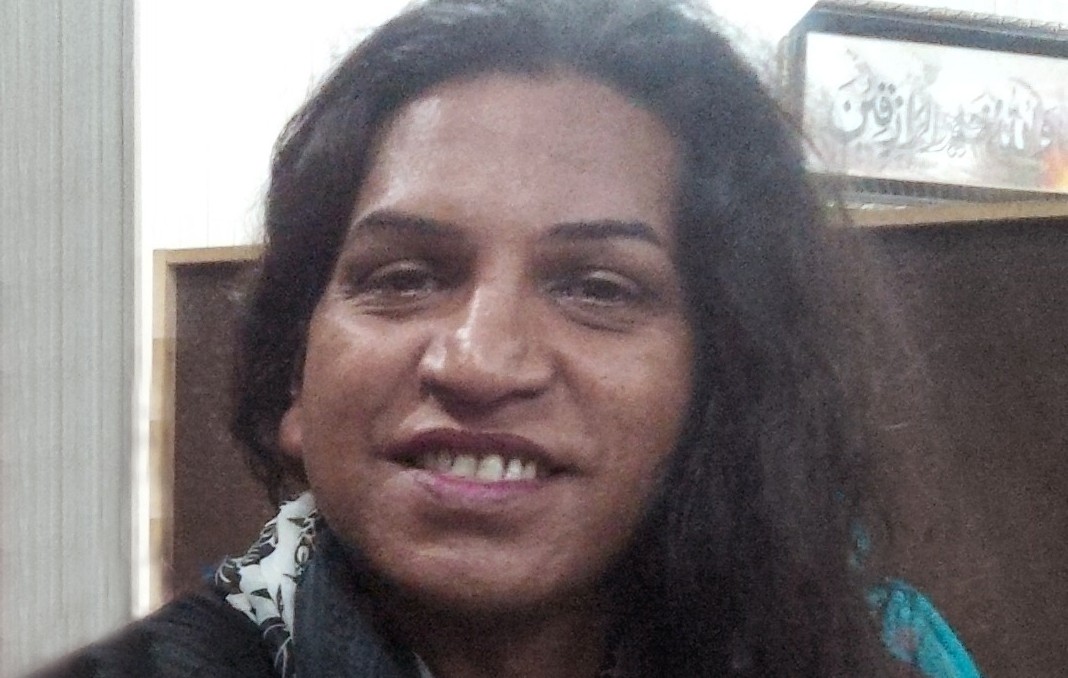

I wanted to meet some transgender people, so I invited them to dinner at a restaurant in Anarkali. A person walked up to me and introduced herself as Neeli Naaz, a transwoman. She was accompanied by two transwomen whom she referred to as "my disciples."
Together, they live in the infamous Heera Mandi with many other transgenders, I was told.
Neeli needed no prompting to launch into a highly charged rant about the travails of being a transgender, especially in a society like ours.
"People look at us and laugh. They think we are aliens, and we are. From childhood, we have been beaten by our brothers and fathers. They keep telling us we are a mistake, a bad name for the family, and that they lost respect in the society because of us.
Why don’t they kill us if they can’t let us live in peace?" Her outburst didn’t seem to come to an end.
Eventually, she asked, "If I fall ill, is there anyone to treat me? There is not a single ward for transgenders [in the hospitals]. I want to study but where do I go to take classes? Which college? Which teacher? (She left school in class 9). I want to wear clothes like you do. Where is the tailor who wouldn’t mind stitching [clothes] for me?
"We often face hunger and starvation. I experienced it as a child." Her tone became more aggressive as she made the glorious declaration, "This is my life and I shall not allow myself to die of hunger!
"We have every right to live. It’s the government’s duty to protect our lives, give us food and provide us with shelter."
Neeli revealed that she hadn’t got her computerised national identity card (CNIC). "It’s been over three months now since I applied. None of us [transgenders] have our ID cards. Does this mean we are not citizens of Pakistan?
"When I turned 18, my father made me my ID card which stated that I was a male. But I am a transwoman."
She went on to share her journey from family life to the ugly world of Heera Mandi. "We are dubbed sex workers. We are offered no jobs. How do we buy us food, clothes and medicines? I could’ve done well with becoming a bank robber but I chose not to go down that road."
Life is clearly a curse for people like Neeli. "We live as slaves," she said, with more than a hint of bitterness. "We go through agony every single day."
Once she even tried to take her own life. The scars from the razor cuts were still evident on her wrist.
A mention of her siblings sends Neeli into a state of gloom. "I do not live with them anymore but I miss them a lot," she said. "I also send money from my savings to my sister who is married with kids."
When asked as to how often she visited her family, she laughed, "Our home is Heera Mandi. All of us here are like sisters. When we visit our parents, I hardly get to spend some time with them. It’s hard for me to stay at a place that haunts me with memories of slurs and humiliation."
One of her disciples cut in, "I love Ami ji but not my Abu. I also love my siblings, though I am closer to my sisters. We used to chat and relax in their room, until my father would arrive home. Then I would hide myself behind curtains, not wanting to be spotted [by him]. He thinks I am an insult to the family."
I ask her what she thought about marriage and all. "How can we marry when we have no reproductive system?" Neeli countered me with a strong-worded question.
"Can transwomen can marry males? Who will marry us? Of course, no one. So, the better option is to stay single."
She even spoke of transgenders not being allowed to adopt a child. "This distresses me all the more," she said.
But, as they say, life goes on, and our survival instincts force us to fish for happiness in everyday things. Neeli is looking forward to babysitting her sister’s children. "I picture myself holding their little hands when I grow old," she murmured.
"I can trust them to give me love and respect, and not hatred and abuse."
She also said she could fend for herself -- "I can work at a beautician’s or a hotel. I hear about a restaurant that’s opening on Jail Road; its entire staff will be transgender. Maybe I should apply for a job there."
Overtime, she has also turned into a bit of a social worker. "At the Forum for Dignity Initiatives (FDI) Pakistan, Uzma Yaqoob is fighting for our rights. She is a great human being. She has no qualms about sitting with us, eating and drinking with us, and she is contributing a great deal to our community."
Yet, she believes transgenders have largely no voice in the society.
When we were wrapping up our conversation, I told Neeli and her disciples about Varys, a eunuch and courtier from the very popular fictional world of Game of Thrones. It’s a character that is shown to be a master of politics, history, military and counselling. Besides, he has a dwarf friend whose retention skills and sharp wit are legendary. He always escapes combat decisions.
Neeli listened to me intently, and then shot, "Do they also have to face hatred and disrespect from their society?"
I am speechless for a moment. "Yes, I am sure, they do," I reply. "They leave their homeland after all. But that’s just fiction."